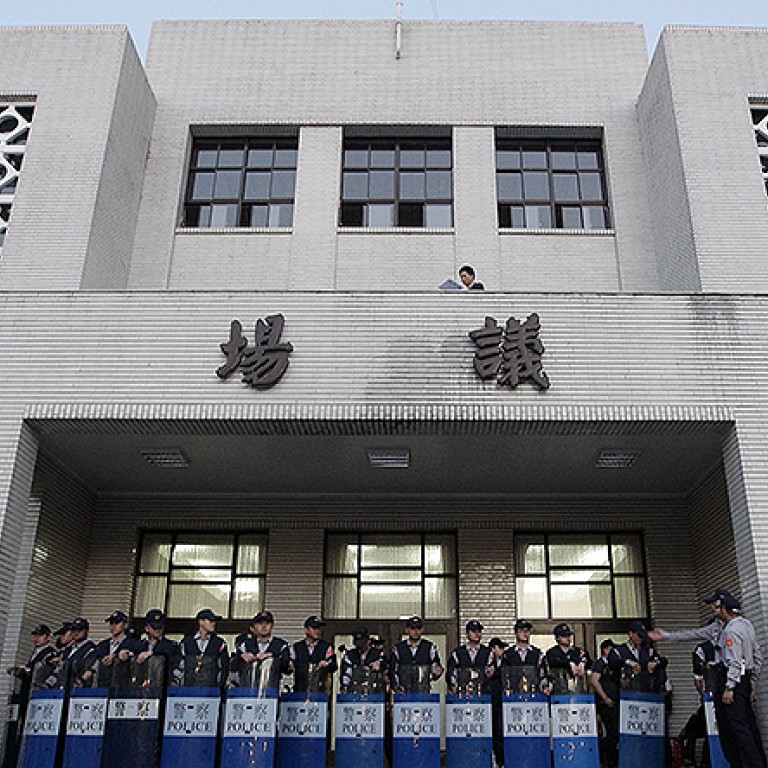
Taiwanese protest is no model for Occupy Central to follow
C. K. Chow says Occupy Central movement is a threat to rule of law
The occupation of Taiwan's legislative chambers by hundreds of students may lend support to Hong Kong's Occupy Central movement.
The movement's organisers say they have not ruled out advancing the demonstration to July or August.
Benny Tai Yiu-ting, one of the founders of Occupy Central, wrote in an article titled "Occupy Legislative Yuan and Occupy Central", that was also posted on the movement's website, that the protests in Taiwan had significantly inspired the movement's followers.
He went on to say that if the government failed to deliver a satisfactory political reform proposal for the 2017 chief executive election, it would provide a "trigger point" to launch Occupy Central.
He also warned that if the National People's Congress Standing Committee amends the electoral methods for the chief executive to include obstacles, such as approving just three to four candidates, or the nominating committee confirms candidates by bloc voting, then Occupy Central may happen in August.
Inspired by the Taiwanese students, Tai said the venues for occupation could also go beyond Central, to the Legislative Council and other places.
Despite promises of "peaceful protests", it is easy to imagine that the potential occupation of Central and Legco would spread to the government headquarters, the stock exchange and the IFC.
If that happened, it would undermine the cornerstones of our success - the rule of law and political stability.
Our freedom of speech is protected under Hong Kong law, so everyone can express their views freely, including calling for universal suffrage.
However, using Occupy Central as a means to intimidate others would only jeopardise Hong Kong's economic development and the public's well-being.
We respect freedom of expression, and stand firmly behind it. However, in exercising our right, we must at the same time abide by the law and also respect others' freedom.
This is the core value of Hong Kong and in line with the judicial view that no one is above the law, as highlighted by a court verdict of unlawful assembly last year.
That verdict sent a clear message that challenging the rule of law with unlawful action will not be tolerated in this society, regardless of the issue. Moreover, abiding by our rule of law is absolutely essential if we are to ensure a fair election.
Unlawful or violent demonstrations will only jeopardise Hong Kong's social order and international image.
If Occupy Central turns into a long-term protest and thousands of demonstrators clog the streets, it would block traffic and hinder people from going about their daily lives. Similarly, businesses in the vicinity - from tea houses and small shops to international companies - would be adversely affected.
This is not what the people of Hong Kong wish to see.
Political stability and security are key factors that determine international companies' decisions to set up business in Hong Kong. The radical elements supporting the Occupy Central movement could undermine our political stability and discourage international investors from doing business in Hong Kong.
People from all walks of life need to set aside their prejudices and discuss controversial issues in a rational manner - instead of participating in radical or unlawful protests.
After all, the costs of the movement will have to be borne by the entire community.
